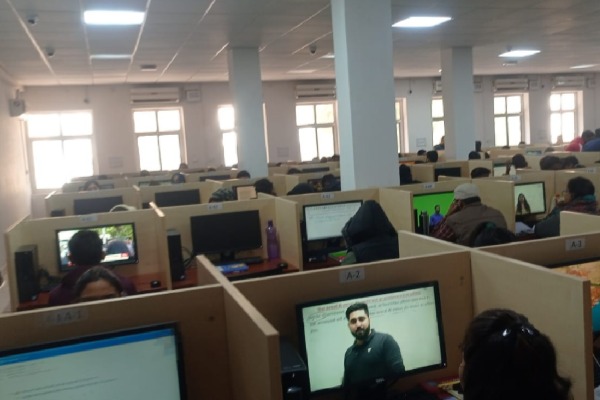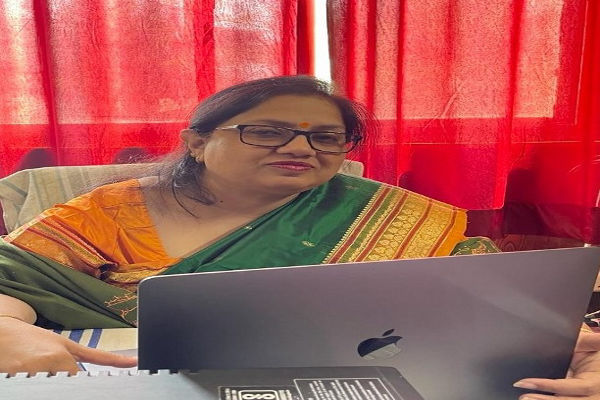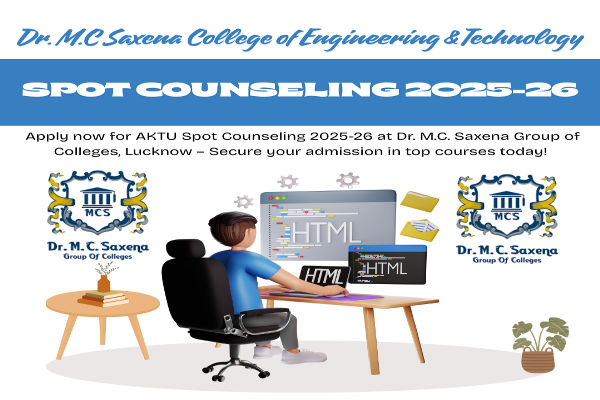
Best Career Opportunities After Polytechnic - What-Next?
Completing a polytechnic diploma opens a world of career and academic opportunities. Whether you hold a specialisation in Computer Science, Civil Engineering, Mechanical Engineering, or any other field, the knowledge that you gain gives you a superior competitive edge in both job markets and further studies. Polytechnic graduates are in demand for roles such as junior engineers, technicians, CAD designers, site supervisors, or IT support specialists. Companies in manufacturing, construction, IT services, and the public sectors often recruit diploma holders for their applied skills and job readiness.
Since these students graduate with a strong foundation in technical skills, they are well-prepared for a wide range of career paths. So, if you’re wondering what is the career after polytechnic, then this informative blog is for you. Discover the most rewarding career paths, further study options, and opportunities that align with your technical background. Kickstart your journey with Dr. M. C. Saxena Group of Colleges, renowned for industry-oriented education and placement assistance.
In this blog, we explore the best career options, advanced study routes, certification opportunities, and even entrepreneurial ventures open to polytechnic graduates, helping you make an informed decision about your future.
Table of Contents
- Immediate Career Options After Polytechnic
- Specialised Certification and Skill Development Courses
- Jobs and Entrepreneurship Opportunities After Polytechnic
- Higher Education Options to Advance Your Career
- Quick Facts About Polytechnic
- Start Your Journey with Dr. M. C. Saxena Group of Colleges
- Frequently Asked Questions
Immediate Career Options After Polytechnic
A polytechnic programme is a diploma programme, which is offered after completing the 10th standard (secondary school) for three consecutive years or after completing the 12th standard (higher secondary school) for two consecutive years. After completing the Polytechnic program, students can either apply for a job or further their education by enrolling in Undergraduate Programs, such as B.Tech (Bachelor of Technology) or B.E. (Bachelor of Engineering).
For those inclined towards further academic pursuits, multiple pathways are available, including:
1. Lateral Entry into Engineering (B.Tech/BE)
Diploma holders can join the second year of B.Tech or BE through lateral entry. Many state-level entrance exams (like LEET, JELET, and others) facilitate this route. Its major benefits include:
- Specialised knowledge in the chosen field
- Enhanced job prospects and salary packages
- Eligibility for higher roles (like R&D, design engineering)
Please note: The eligibility for these courses is a minimum of 45–50% in the diploma, exam-based admission.
2. B.Sc. / BCA / BBA Programs
Students with a diploma in computer science or IT can opt for a BCA (Bachelor of Computer Applications), a B.Sc. in IT or Electronics, or a BBA for a management-oriented career. Its primary benefits include:
- These degrees equip students with industry-relevant knowledge, making them eligible for more diverse and higher-paying roles.
- Eligibility for higher education, such as MBA, MCA, M.Sc. (IT), and competitive exams such as UPSC, SSC CGL, IBPS, and State PSCs.
- Enhanced soft skills and business acumen encompass a problem-solving mindset, teamwork, and professionalism.
- Career diversification along with better salary prospects.
Please note: These programs are ideal for individuals who wish to transition or diversify their careers into the IT or management sectors.
Specialised Certification and Skill Development Courses
Polytechnic diploma holders gain a strong foundation in practical and technical knowledge, but to remain competitive, in-demand, and advance their careers, enrolling in industry-recognised certifications and skill development courses can be a game-changer.
Diploma holders can also consider specialised professional certifications such as:
- AutoCAD, CATIA for mechanical and civil streams
- CCNA, AWS, Python, Data Science for IT students
- Project Management (PMP) and Six Sigma for supervisory and quality control roles
With these highly certified courses, individuals gain niche skills, achieve international recognition, enhance their employability, and improve their earning potential through lifelong learning.
Jobs and Entrepreneurship Opportunities After Polytechnic
After completing a polytechnic diploma, students have several pathways open to them, including employment in various industries and entrepreneurship ventures.
1. Jobs after Polytechnic Diploma
Polytechnic education emphasises hands-on skills and practical knowledge, which employers highly value. According to the National Skill Development Corporation (NSDC), vocational and technical skills form the backbone of India’s skilled workforce, particularly in manufacturing, construction, IT, and service sectors. Popular job roles include:
- Mechanical Engineering: Junior Mechanical Engineer, CAD Designer, Maintenance Technician
- Civil Engineering: Site Supervisor, Junior Engineer, Quantity Surveyor
- Electrical Engineering: Electrical Technician, Electrician, Maintenance Engineer
- Information Technology (IT): Network Administrator, Software Tester, Technical Support
- Electronics & Communication: Electronics Technician, Field Service Engineer
- Automobile Engineering: Vehicle Technician, Service Advisor
- Fashion Technology: Textile Designer, Production Assistant
2. Entrepreneurship Opportunities After Polytechnic
With increasing support from government and industry, entrepreneurship is becoming a viable and attractive career path for diploma holders. It offers financial independence, flexibility, and potential for innovation and social impact. Types of ventures include:
- Mechanical & Civil: Fabrication units, CNC workshops, and Construction services
- Electrical & Electronics: Solar panel installation, Electronics repair, and Home automation
- IT & Computer Science: Web/app development, Digital marketing, IT support
- Fashion & Design: Boutique, Custom tailoring, Accessories
- Food & Hospitality: Catering, Cloud kitchens, and Food packaging
Higher Education Options to Advance Your Career
Students interested in enhancing their education and skillset can aim for Polytechnic courses and career options that will help them gain practical technical knowledge, develop industry-relevant skills, and open doors to diverse job roles and higher education opportunities in engineering, technology, management, and entrepreneurship.
- B.Tech / BE (Bachelor of Technology / Engineering): Most common option for diploma holders seeking in-depth technical knowledge.
- B.Sc. (Bachelor of Science) Programs: Options like B.Sc. in Computer Science, IT, Electronics, or related fields.
- BCA (Bachelor of Computer Applications): Focuses on software, programming, and application development.
- BBA (Bachelor of Business Administration): Designed for students interested in management, business operations, or entrepreneurship.
- Diploma to Degree Bridge Programs: Some universities, like Dr. M. C. Saxena Group of Colleges, offer bridge courses to help diploma holders meet degree entry requirements.
- Postgraduate Programs (After Bachelor’s Degree): M.Tech, MBA, MCA, or MSc for advanced specialisation and leadership roles.
Quick Facts About Polytechnic
- Do you know that over 3 million students enrol in polytechnic diploma courses annually across India, making it a popular technical education pathway.
- Approximately 60-65% of polytechnic graduates secure employment within six months of completing their course, particularly in sectors such as manufacturing, IT, and construction.
- Approximately 40-50% of polytechnic diploma holders opt for lateral entry into engineering degree programs to advance their education and career.
Start Your Journey with Dr. M. C. Saxena Group of Colleges
Dr. M.C. Saxena Group of Colleges stands out for its commitment to excellence in technical education, blending strong academic foundations with hands-on industry exposure. With state-of-the-art labs, experienced faculty, and a curriculum aligned with real-world demands, students gain practical skills that employers value.
- Email: atmcscet@rediffmail.com
- Phone: +91 9936052233
Ready to take the first step? Explore our diploma-to-degree pathways, industry certifications, and placement support to fast-track your career after polytechnic.
Frequently Asked Questions
Q1. Can I get a government job after a polytechnic diploma?
Ans. Yes, polytechnic diploma holders are eligible for various government jobs such as junior engineers, technicians, and clerks in departments like Railways, PWD, DRDO, BSNL, and state electricity boards. Recruitment is typically conducted through exams such as SSC JE, RRB, and state Public Service Commissions (PSCs).
Q2. Is a polytechnic better than a +2 for engineering?
Ans. Polytechnic is an excellent option for students who want a more hands-on and career-focused path into engineering. It allows direct entry into the second year of B.Tech/BE, saving time and providing practical exposure earlier than traditional +2 routes.
Q3. Which diploma branch has the highest salary potential?
Ans. Diploma branches like Computer Science, Information Technology, and Electronics & Communication typically offer higher salary potential due to demand in IT, software, and telecom sectors. However, salary also depends on skills, certifications, and job location





































































